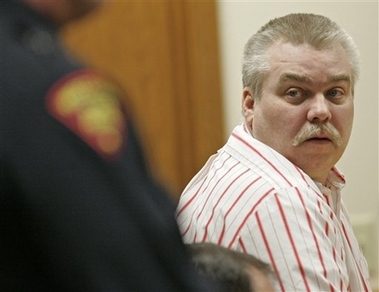Man freed by DNA found guilty in slaying
(AP)Updated: 2007-03-19 10:03
CHILTON, Wis. - A man who spent 18 years in prison for a rape he didn't commit was convicted Sunday of murdering a photographer, whose charred bones were found in a burn pit outside his home.
Halbach disappeared Oct. 31, 2005, after going to the yard in rural Manitowoc County to photograph a minivan that Avery's sister had for sale through Auto Trader Magazine. Avery had called that morning to request the photo, testimony showed.
A few days later, Halbach's vehicle was found in the Avery salvage lot under branches, pieces of wood and car parts. Investigators then spent a week on the 40-acre property and found charred fragments of her bones in a pit behind Avery's garage and in a barrel, along with her camera and cell phone.
Two years before Halbach died, Avery was released from prison after serving 18 years for a Manitowoc County rape that DNA analysis showed he did not commit. He later settled a wrongful-conviction lawsuit against the county for $400,000 and used it for his defense.
After the verdict was read, Halbach's brother, Mike Halbach, told reporters that he was pleased and that he believed his sister's spirit guided the jury.
"What matters is that Steven Avery is going to be in prison for rest of his life, which from the start is what we wanted," he said.
The jury convicted Avery of first-degree intentional homicide and being a felon in possession of a firearm. He was acquitted of mutilating a corpse. The panel deliberated over three days and heard a month of testimony.
Avery's nephew Brendan Dassey is due for trial next month. In March 2006, he confessed to helping kill and rape Halbach.
Prosecutors then added charges of sexual assault, kidnapping and false imprisonment to Avery's case. But Dassey recanted his confession and rejected a plea deal that would have required him to testify against his uncle.
The judge dismissed the sexual assault and kidnapping charges against Avery in January because prosecutors could not guarantee the nephew would testify. The judge dismissed the false imprisonment charge Monday, saying the jurors didn't have enough evidence to convict Avery of the charge.
Mike Halbach said his family expects Dassey's trial to have a similar outcome after it begins April 16.
In closing arguments, defense lawyer Dean Strang had told jurors their verdict could "set a lot of things right" for Avery because of his previous wrongful conviction.
"The 1985 case won't matter so much anymore if justice is done this time," he said.
But special prosecutor Ken Kratz said it was "absolutely improper" for the defense to ask jurors to take the old case into account.
He told jurors the prosecution's theory of what happened - that Avery backed Halbach's vehicle into his empty garage, closed the garage door and at some point shot Halbach at least twice and put her in the back of her vehicle.
Avery's attorneys had claimed Manitowoc County Sheriff's Sgt. Andrew Colborn and Lt. James Lenk, embarrassed by Avery's wrongful-conviction lawsuit, planted evidence to make sure he would be convicted of the murder, including putting Avery's blood in Halbach's vehicle.
The lawyers claimed the blood came from an unsecured vial from Avery's appeals of the rape case. They also claimed the bones were moved to where they were found.
To acquit Avery, Kratz said, the jury would have to have believed someone else killed Halbach and "skillfully exploited" the officials' supposed animosity to get Avery framed for the killing.
"That's absurd," he said. "If this wasn't such an important decision that you had to make, it would be laughable."
Colborn and Lenk testified they never planted evidence and had no anger or embarrassment over the lawsuit.
|
||
|
||
|
|

